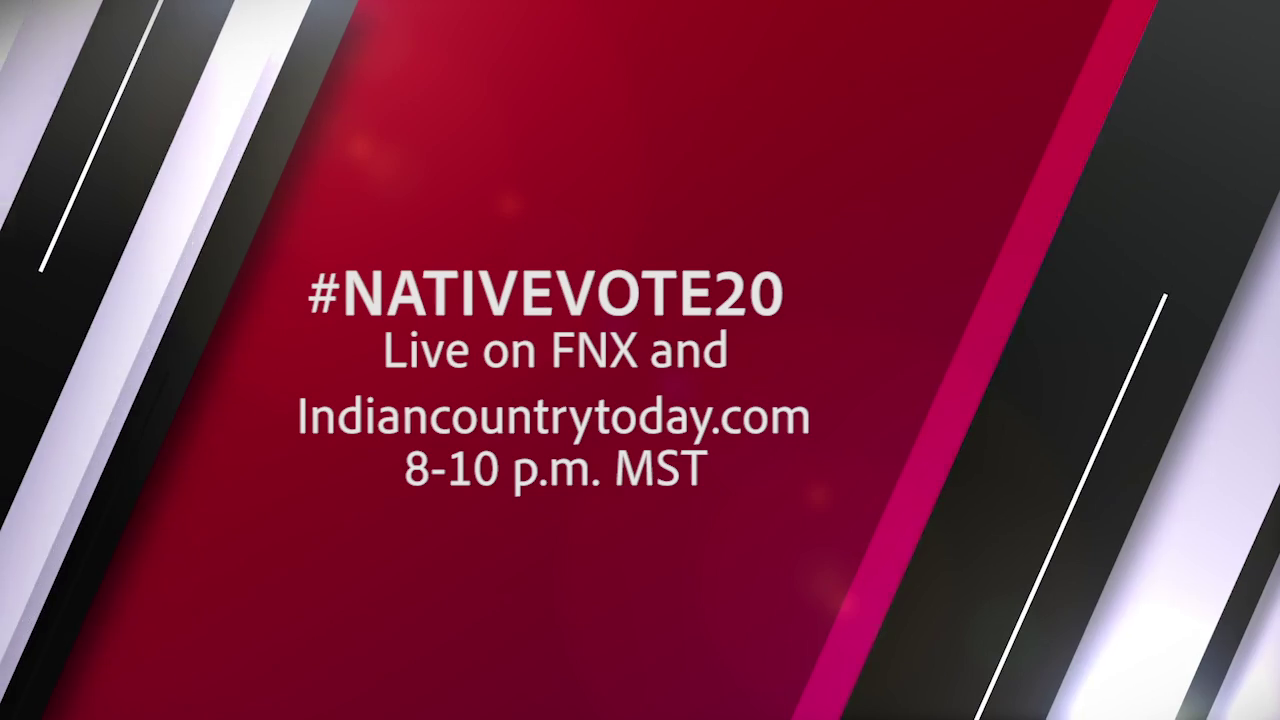Indianz.Com > News > Indian Country Today: Native voters play role in key Senate races
Video Player
00:00
00:00
Native vote could affect key Senate races
Indigenous voters stand to play pivotal role in important races in North Carolina, Arizona, Montana, Alaska #NativeVote20
Tuesday, November 3, 2020
Indian Country Today
Already on pins and needles over the presidential race, COVID-19 developments and growing social and racial unrest, voters may face a divided Senate after the election.
Like everything else about this election, the Senate races are volatile and uncertain.
Republicans currently lead the Senate with 53 seats, compared with 47 Democrats and two independents. If the Democrats manage to win four of the 35 available seats, they can control the Senate.
If the split is even, however, woe is the new president as he tries to govern a governmental body in which one Senator could determine the fate of key legislation.
In the case of an even split, the party that holds the White House runs the Senate; the vice president — according to Article 1, Section 3 of the Constitution — can cast a vote to decide any ties.
Once again, as in the presidential election in which Native voters could influence the outcome in important swing states, they could also have a pivotal impact in several important Senate races.
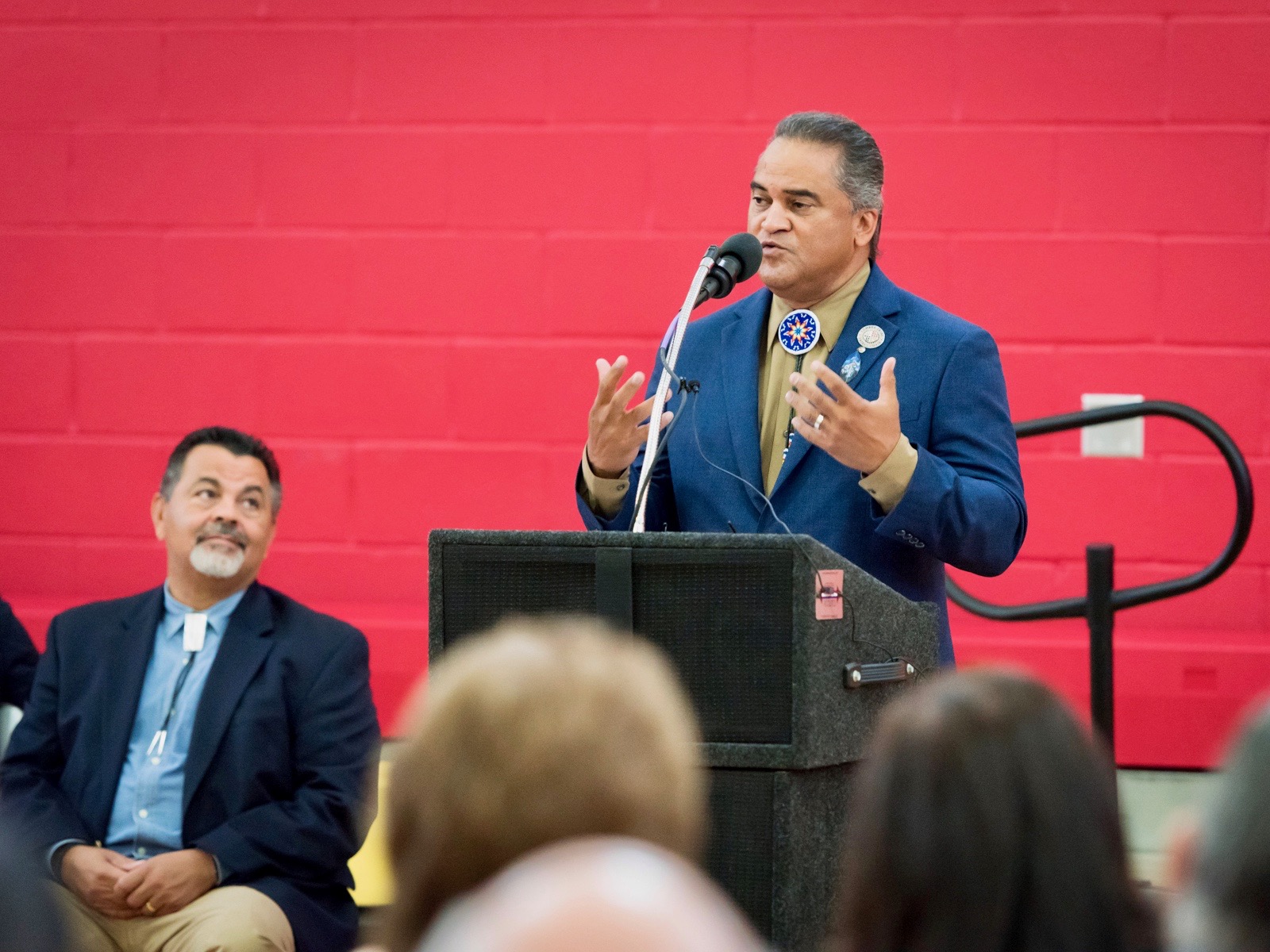
Swing state, swing county, swing tribe
North Carolina, also a swing state, is shaping up to be among the most surprising and interesting battlegrounds. The race between incumbent Republican Sen. Thom Tillis and opponent Cal Cunningham, a Democrat, has attracted a great deal of political campaign focus on Native voters in a state that seems incongruent compared to the whole of Indian Country.
According to its website, the Lumbee Tribe, with over 55,000 citizens, is not only the largest tribe in North Carolina but also the largest east of the Mississippi. The tribe, recognized by the state, has been fighting for federal recognition for years. Nearly every politician, both Republicans and Democrats, with a stake in next week’s election has come out to strongly support federal recognition for the tribe.
Tribal Chairman Harvey Godwin Jr. describes the Lumbee — based in Robeson County, one of the country’s most diverse areas — as a swing tribe that voted for Donald Trump in 2016 after years of traditionally voting Democratic.
Lumbee member Horace Locklear told The Associated Press in 2017 that he supported Barack Obama but later voted for Trump because of Trump’s plans for the economy, and because he didn’t want to vote for Hillary Clinton.
Arizona
Arizona, also considered a swing state in the presidential election, is facing a close Senate race between Republican incumbent Martha McSally, who was appointed to serve in former Sen. John McCain’s seat, and Democratic challenger Mark Kelly. McSally is running in a special election seeking to serve out McCain’s term, which would have ended in 2022. Kelly is leading significantly in terms of fundraising and voter polls.
Kelly has visited the Navajo Nation several times during the campaign and released a radio ad in which he introduces himself in the Navajo language. He appointed Democratic state Sen. Jamescita Peshlakai to serve as campaign treasurer. Peshlakai, of the Navajo Nation, is one of the first Native women to serve in the Arizona Legislature.
Like Trump, McSally claims credit for including tribes in the COVID-19 relief funds that were whittled down from $200 billion to $20 billion; she also urged the administration to give tribes more time to use the funds.
The New York Times and other media outlets have characterized Trump’s endorsement of McSally as lukewarm, pointing to his recent rally in Arizona where he quickly rushed her offstage, barely giving her time to make comments.
Native Americans make up 5.6 percent of eligible voters in Arizona, a state that has been reliably Republican in the past but is now considered a key swing state.
Montana
“Democratic candidates in Montana are more prevalent in Native communities,” said Marci McLean of the Blackfeet tribe. McLean is executive director of Western Native Voice, a voter and social justice advocacy organization in Montana.
A close ally of Trump, Republican incumbent Sen. Steve Daines is defending his seat against Democratic challenger Gov. Steve Bullock. Considered one of the nation’s most popular Democratic governors, Bullock won reelection in 2016 despite Hillary Clinton’s overwhelming defeat in the state.
In an op-ed published in the Billings Gazette, Rhea Real Bird of Crow Agency noted Daines’ support of cuts to nutrition assistance and his desire to repeal the Affordable Care Act, which reauthorized the Indian Healthcare Improvement Act. Montana’s Native American Caucus also urged Daines to oppose confirmation of Amy Coney Barrett to the U.S. Supreme Court. Daines voted in favor of her confirmation.
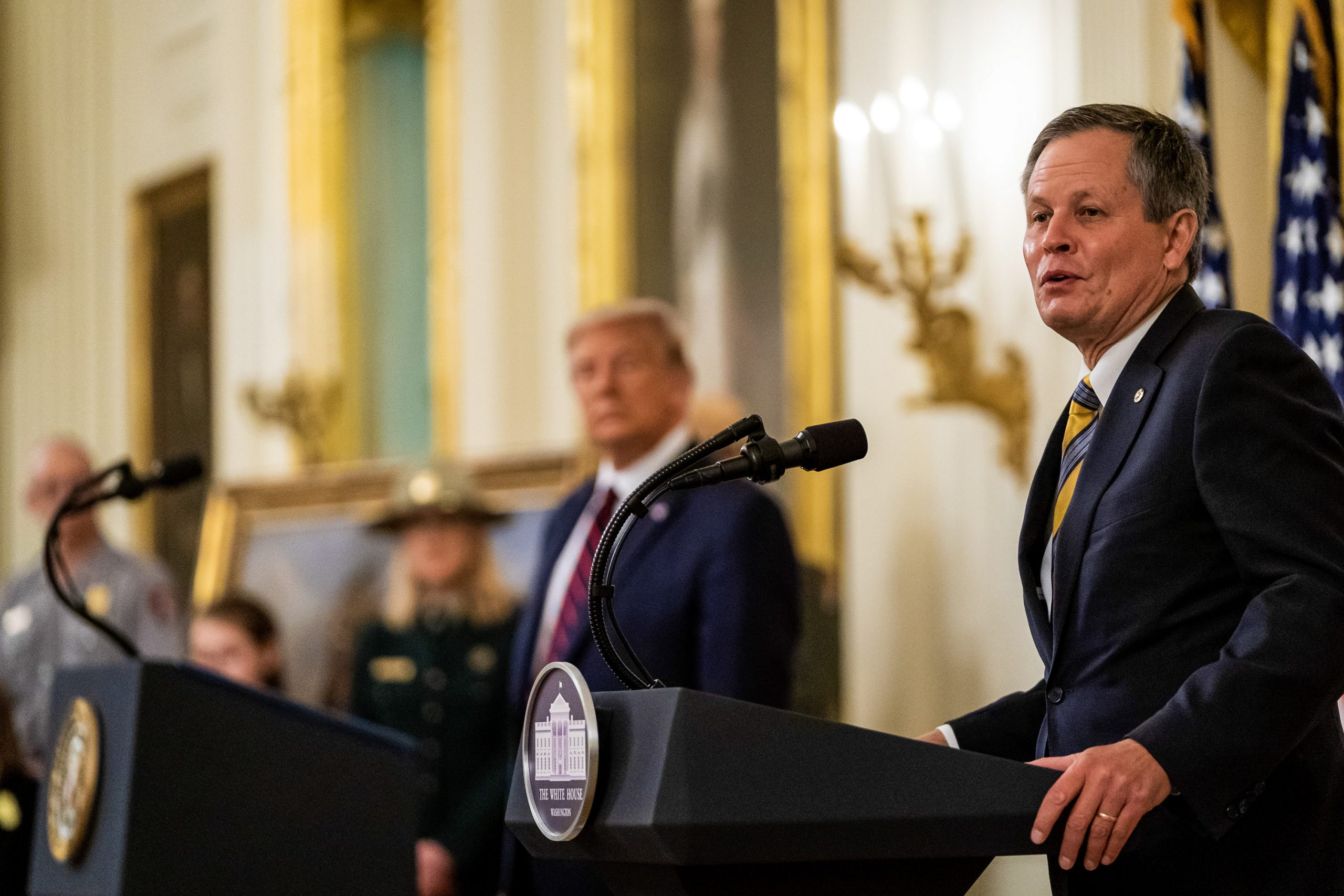
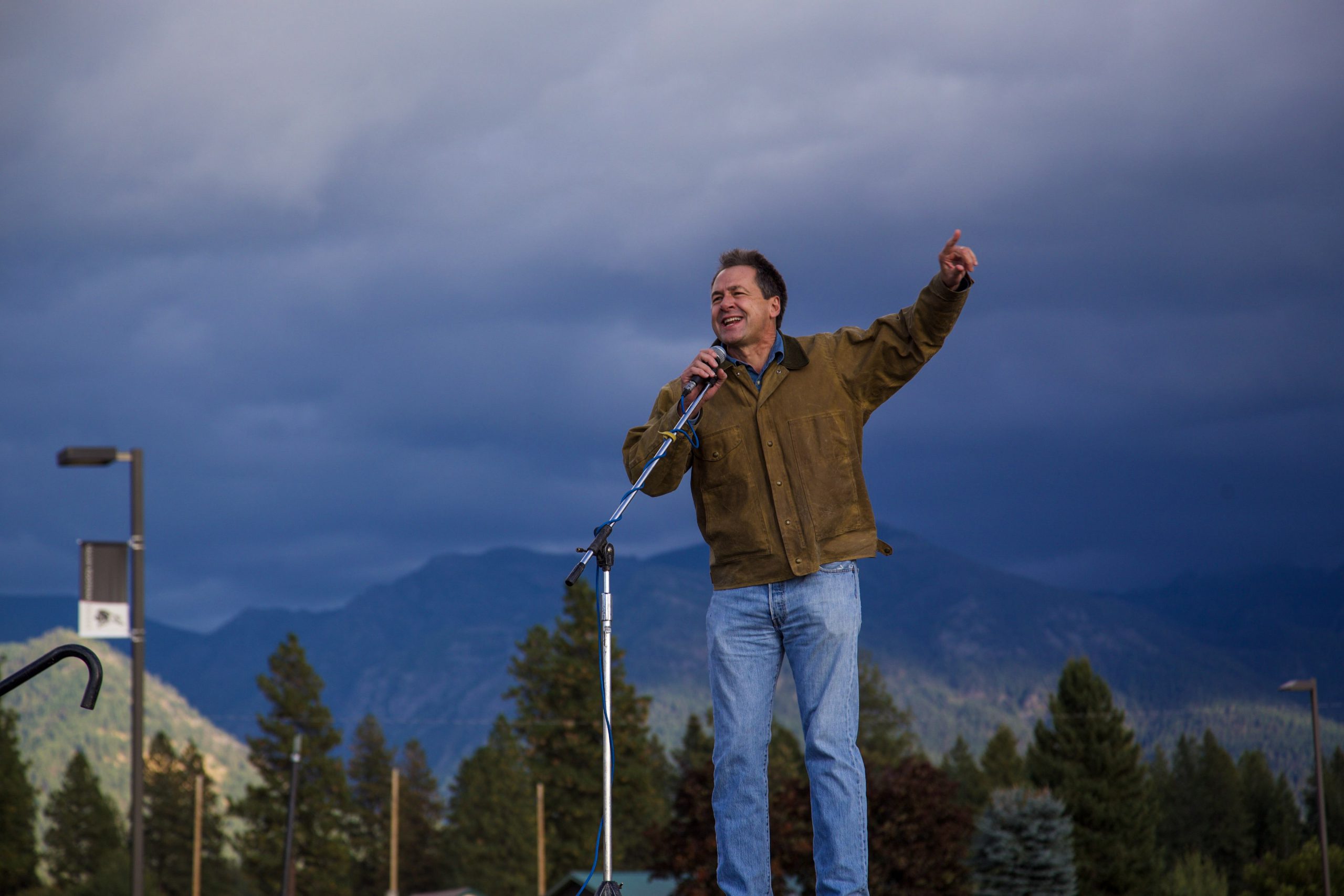
Alaska
Although Alaska has traditionally been a solid Republican state, nonpartisan Senate challenger Al Gross has been running an innovative and popular campaign against incumbent Republican Sen. Dan Sullivan.
Using a strategy called relational organizing — in which organizers rely on existing relationships to drive voters, rather than the traditional approaches involving door knocking, phone calls and texts — Gross has mounted a strong opposition to Sullivan.
He has been praised for outreach in Alaska Native communities and opposition to the Pebble Mine.
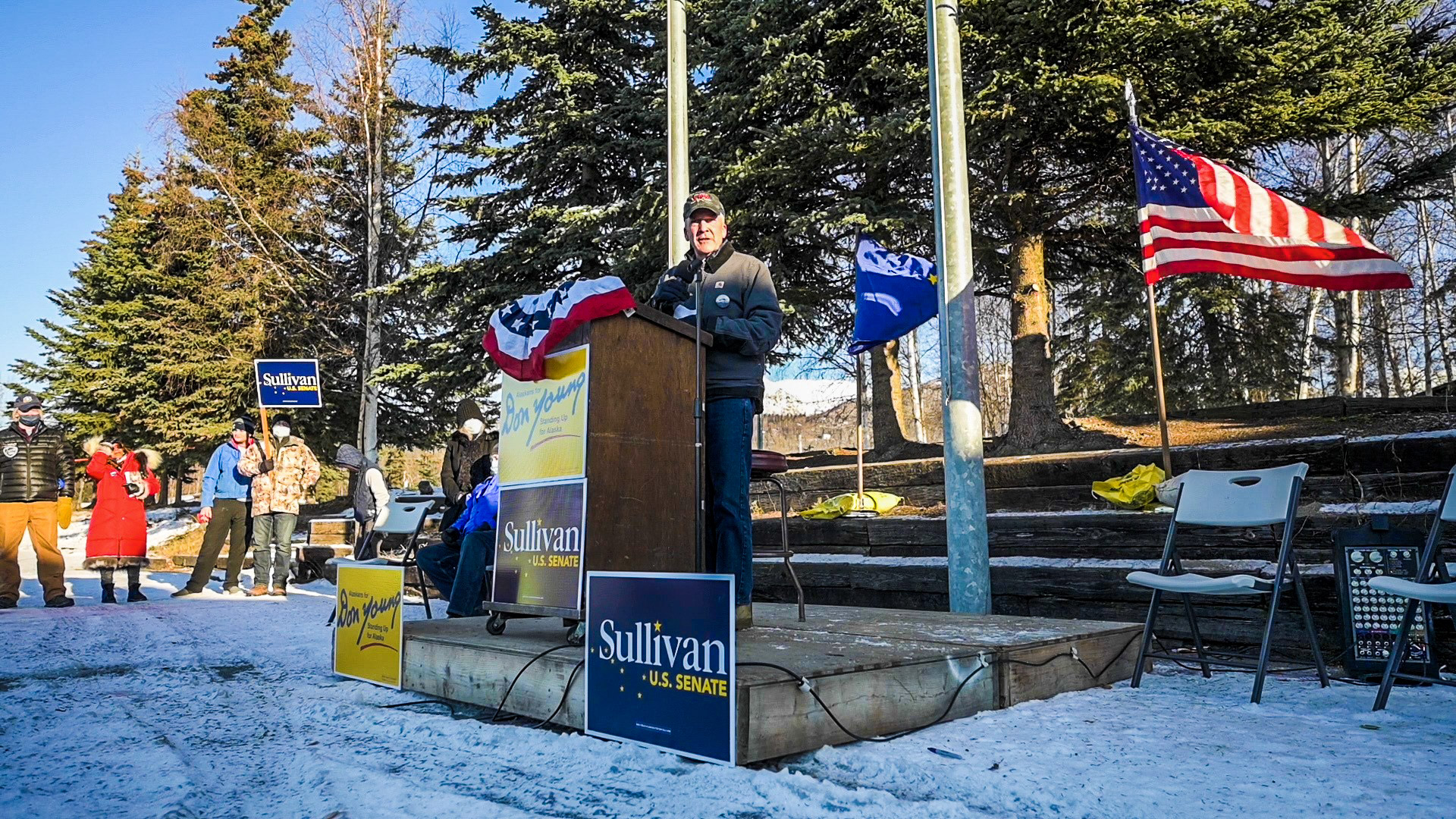
Mary Annette Pember, a citizen of the Red Cliff Ojibwe tribe, is a national correspondent for Indian Country Today. Follow Pember on Twitter @mapember. Based in Cincinnati, Ohio. Pember loves film, books and jingle dress dancing.
This article originally appeared on Indian Country Today LLC, a nonprofit, public media enterprise. ICT does not charge for subscriptions and tribal media (or any media, for that matter) can use the publiciation’s content for free. Contribute to the nonprofit Indian Country Today. Thumbnail image of U.S. Senate: Photo by Indianz.Com (CC BY-NC-SA 4.0)
Search
Filed Under
Tags
More Headlines
Cronkite News: President Trump targets Smithsonian in another anti-DEI effort
Native America Calling: Counteracting a pollinator crisis
Cronkite News: Arizona State University hosts annual powwow
Chickasaw Nation citizen T.W. Shannon joins Department of Agriculture
NAFOA: 5 Things You Need to Know this Week (April 14, 2025)
Bryan Warner: Cherokee Nation invests in food sovereignty
Native America Calling: Tribal libraries, museums, low-income heating and food sovereignty on the chopping block
Native America Calling: Contemporary Pueblo architects reclaim ancestral knowledge
Native America Calling: Flexing tribal strength during turbulent times
National Indian Health Board names permanent chief executive amid major change
Native America Calling: Medicaid, Medicare, health care, and food safety on the line
Montana Free Press: Blackfeet Nation citizens cite treaty rights in lawsuit over tariffs
Cronkite News: A ‘mural with a message’ rises in Arizona
Chuck Hoskin: Cherokee Nation is an economic powerhouse
Native America Calling: Philanthropy fills in the gaps
More Headlines
Native America Calling: Counteracting a pollinator crisis
Cronkite News: Arizona State University hosts annual powwow
Chickasaw Nation citizen T.W. Shannon joins Department of Agriculture
NAFOA: 5 Things You Need to Know this Week (April 14, 2025)
Bryan Warner: Cherokee Nation invests in food sovereignty
Native America Calling: Tribal libraries, museums, low-income heating and food sovereignty on the chopping block
Native America Calling: Contemporary Pueblo architects reclaim ancestral knowledge
Native America Calling: Flexing tribal strength during turbulent times
National Indian Health Board names permanent chief executive amid major change
Native America Calling: Medicaid, Medicare, health care, and food safety on the line
Montana Free Press: Blackfeet Nation citizens cite treaty rights in lawsuit over tariffs
Cronkite News: A ‘mural with a message’ rises in Arizona
Chuck Hoskin: Cherokee Nation is an economic powerhouse
Native America Calling: Philanthropy fills in the gaps
More Headlines
